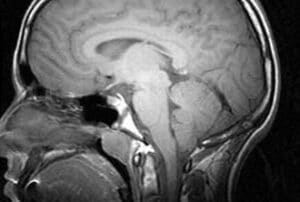No Fee Unless You Win
No Fee Unless You Win
Time is brain. When a stroke strikes, every second counts. Prompt diagnosis and treatment are crucial to minimizing damage and improving outcomes. Unfortunately, for some patients, a missed or delayed diagnosis leaves them with significant disabilities or even death. At Gage Mathers Law Group, we have seen firsthand the devastating consequences of stroke misdiagnosis in cases like those of Mark and Jill. Their stories are powerful reminders of the importance of recognizing the signs of stroke, and advocating for a proper workup with misdiagnosis seems probable.

Recognizing the symptoms of a stroke is essential to ensuring timely treatment. The acronym FAST BENCH can help you remember the key warning signs:
Importantly, women can also experience:
However, some signs of stroke in women can be subtle enough to be missed or brushed off. Therefore, immediately seek emergency medical attention if you or a loved one experiences these signs. Make sure to note when the symptoms first appeared since this can have significant implications on the available treatment.
Delays in identifying the signs of a stroke can lead to delays in getting time-sensitive, lifesaving treatment. Advocating for yourself or a loved one can make all the difference, including asking for imaging studies necessary to rule in or rule out a stroke (e.g., MRI or CT). Do not be afraid to voice your concerns to the healthcare providers, especially if you suspect they are missing a potential stroke diagnosis. You know your body best; tell someone if something feels off or not right. If you feel like the providers are brushing you off or ignoring important details, seek a second opinion—without hesitation. Importantly, keep a journal detailing a chronology of your symptoms and how they are progressing.
Stroke misdiagnosis occurs when a healthcare provider fails to recognize a patient’s symptoms are being caused by a stroke as opposed to another medical condition. The three most common situations are:
Stroke treatment depends on the type of stroke and how much time has passed since symptoms began. There are two types of strokes:
The vast majority, 87%, are ischemic strokes.
An ischemic stroke occurs when a blood vessel supplying blood to the brain is obstructed. The most common cause of obstruction is a blood clot. The goal is to restore blood flow, and the best method is to use a clot-busting drug called tPA. However, to be eligible for tPA, presuming you don’t have other contraindications, a doctor must diagnose and treat your stroke within 3 to 4.5 hours from the onset of symptoms. Other treatments may include a procedure to remove the clot and open the blood vessel and medications and treatment to prevent reoccurrence.
A hemorrhagic stroke occurs when a weakened blood vessel ruptures. Weakened blood vessels in the brain come from aneurysms and arteriovenous malformations. Treatment includes controlling blood pressure, reducing brain swelling, and a procedure to remediate the weakened vessel.
The effects of a misdiagnosed stroke can be catastrophic. While some people recover some function, many victims suffer permanent neurological damage, loss of independence, and even death.
Mark was a healthy, active husband and father. He coached high school wrestling. While at practice, he began experiencing symptoms of a stroke, including severe dizziness, nausea, vomiting, and headache. Despite promptly seeking medical attention, his symptoms were dismissed as vertigo. By the time the stroke was correctly diagnosed, the opportunity to avoid permanent disability had passed. The stroke misdiagnosis left him with debilitating physical and cognitive impairments that could have been avoided with a timely diagnosis.
Jill suddenly developed right-sided weakness and went to the hospital. She exhibited severe neurological symptoms, but the workup at the hospital was delayed. The most opportune time to intervene passed, leaving Jill with significant permanent physical and mental deficits. She lost all independence and will require 24-hour care.
Health care providers undergo a lot of training and make significant amounts of money for society’s reliance on their learned hand. We trust them with our life, limb, and sometimes our deepest secrets. When it comes to strokes, we rely on healthcare providers to catch them early and administer life-sparing treatment. Sadly, that’s not always the case, which is why we put this guide together. It is critical that you are aware of potential stroke symptoms, advocate for yourself, and help avoid a stroke misdiagnosis.
If you or a loved one suffered harm due to a stroke misdiagnosis, you may have grounds for a medical malpractice claim. Gage Mathers Law Group focuses on holding negligent healthcare providers accountable and securing full and fair compensation for victims. Cases like those of Mark and Jill demonstrate the importance of seeking justice and preventing similar tragedies from happening to others. Contact us today for a free case evaluation.

The settlement process for car accident claims can stall for many reasons, including difficulty proving liability, missing evidence, purposeful delay tactics by insurance companies, ongoing medical t...
Posted by Joseph D'Aguanno
If you’ve been in a car accident in Phoenix, Arizona, you’re probably dealing with pain, paperwork, and pushy insurance adjusters. Finding the right lawyer shouldn’t add to that stress. The...
read morePosted by Joseph D'Aguanno
Whiplash injuries are not always obvious, so you need to get medical attention even if you don’t feel any pain to ensure you get the correct diagnosis and treatment. Then, contact the best acci...
read moreIf you or a loved one has been seriously injured, please fill out the form below for your free consultation or call us at (602) 258-0646
2525 E Arizona Biltmore Cir #A114, Phoenix, AZ 85016
get directions